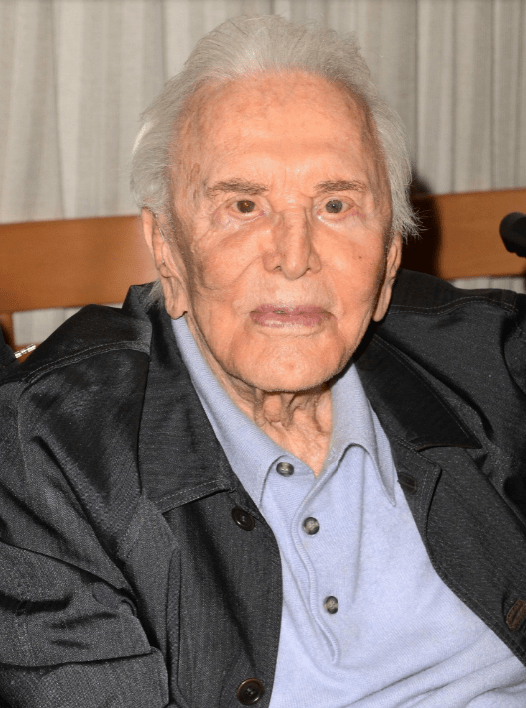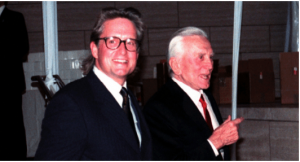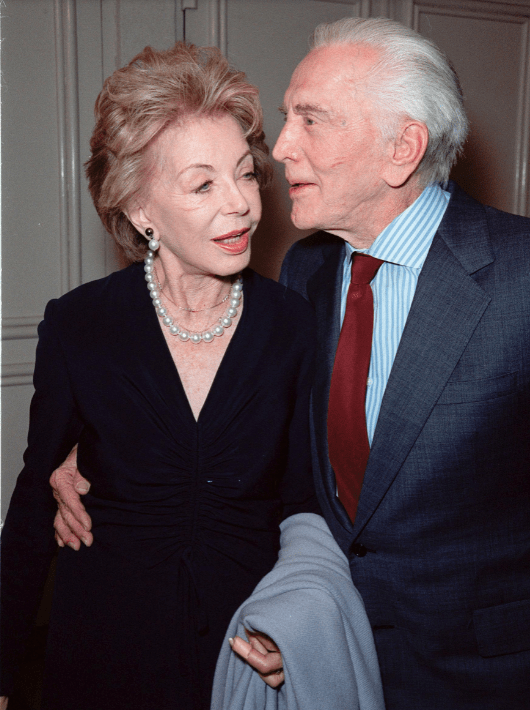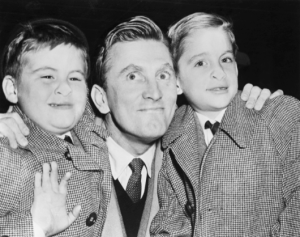Kirk Douglas, born in New York in 1916, faced a harsh upbringing. As the only son of Russian Jewish immigrants, he grew up in a poverty-stricken environment, living in a dilapidated house with his large family.
Douglas described his childhood neighborhood as one of struggle and deprivation. His father, Hershel Douglas, worked as a junk trader, facing discrimination that prevented him from working in nearby mills. The family’s financial struggles were severe, leading Douglas to engage in petty theft to make ends meet. Despite these hardships, Douglas’s determination to pursue a career in acting remained steadfast.
Passion for Acting and Early Career

Douglas’s interest in acting began during his time at Wilbur Lynch High School. Encouraged by his English teacher, Louise Livingston, he developed a passion for theater and poetry. Although he saved every penny to attend college and theater school, financial constraints prevented him from affording tuition.

Undeterred, Douglas hitchhiked 200 miles to St. Lawrence University, where he successfully secured a scholarship after impressing the faculty dean. He adopted the stage name Kirk Douglas while working at the Tamarack Playhouse, choosing a name he felt embodied strength and resilience.
Service and Recovery

World War II interrupted Douglas’s budding career. He enlisted with a strong sense of patriotism and Jewish identity, initially aiming to become an Army pilot but ultimately serving as a communication officer on a submarine. In 1943, Douglas sustained injuries from an accident on the submarine and was discharged with amoebic dysentery. Despite this setback, he resumed his acting career. A critical turning point came when producer Hal Willis cast him in “The Strange Loves of Martha Ivers” in 1946. This role marked the beginning of Douglas’s ascent in Hollywood.
Rise to Fame and Legacy

Douglas’s career skyrocketed with his role as boxer Midge Kelly in “Champion” (1949), earning him his first Academy Award nomination. His portrayal of Spartacus in the 1960 film “Spartacus” cemented his status as a Hollywood icon. Despite not winning an Oscar for “Spartacus,” the film received four Academy Awards and solidified Douglas’s position in the industry. Over his career, Douglas appeared in nearly 90 films, with his final role being in the 2008 television film “Empire State Building Murders.” His legacy includes a lifetime of significant contributions to cinema.
Charitable Contributions and Final Legacy

At the time of his death on February 5, 2020, at 103, Douglas’s estate was valued at approximately $61 million. However, none of his children, including actor Michael Douglas, received any inheritance. Instead, Douglas dedicated his wealth to charitable causes. He donated $50 million to St.

Lawrence University and supported numerous institutions, including the Sinai Temple of Westwood, the Kirk Douglas Theatre, and the Children’s Hospital of Los Angeles. His philanthropic efforts were managed through the Douglas Foundation, which aims to assist those in need. Despite the lack of financial inheritance, Michael Douglas praised his father’s charitable work and his enduring cinematic legacy, acknowledging the impact Kirk Douglas made both on and off the screen.







